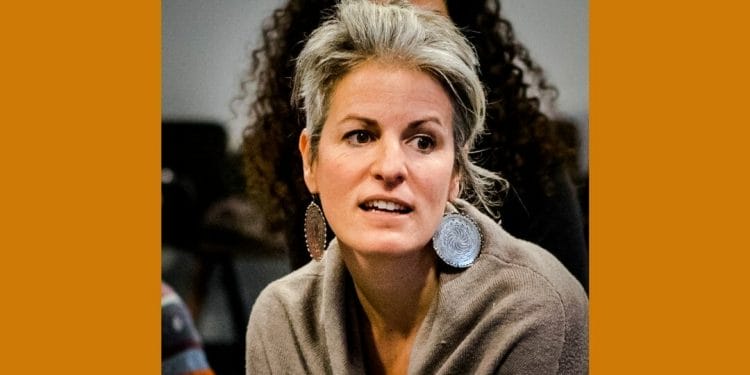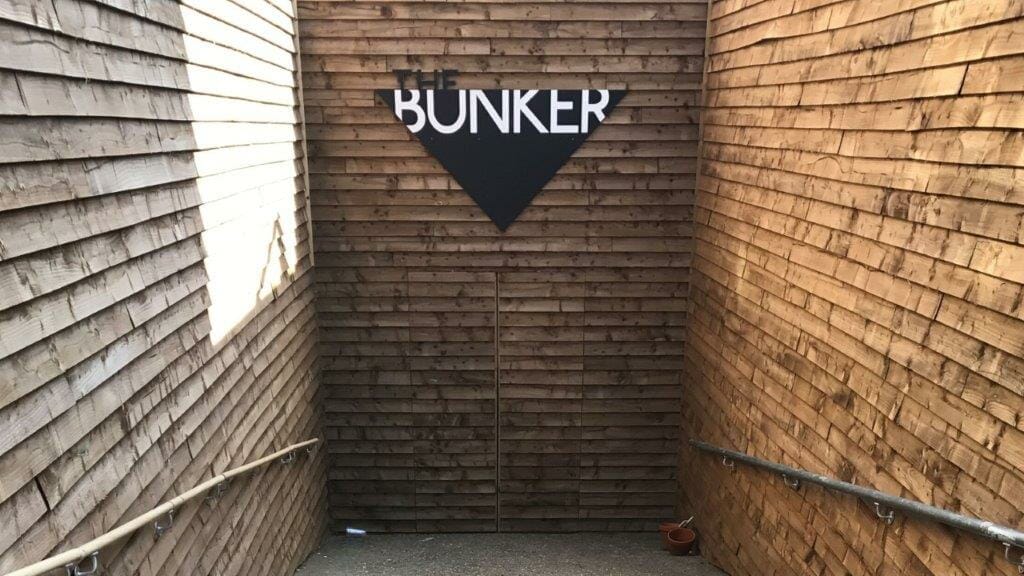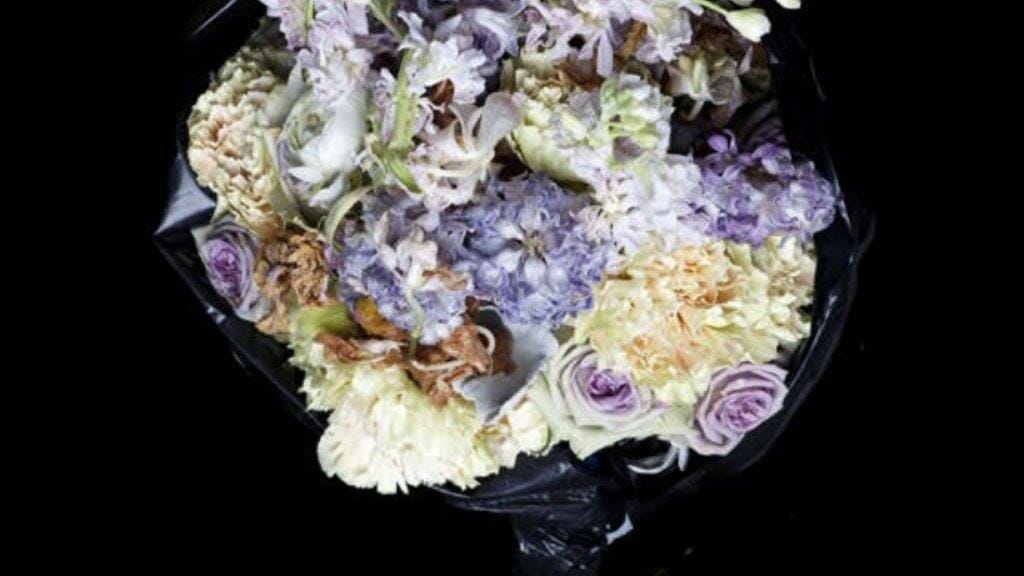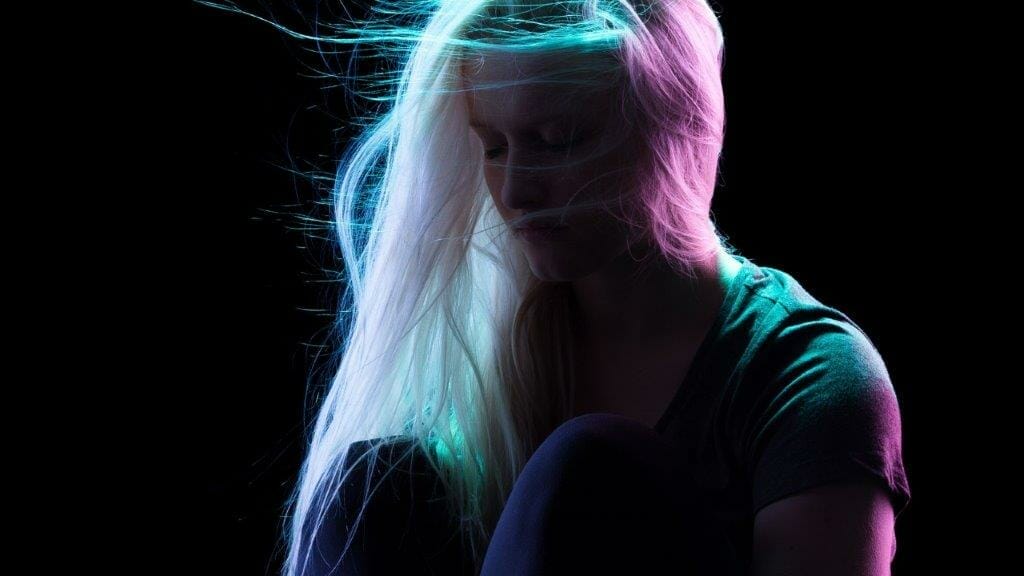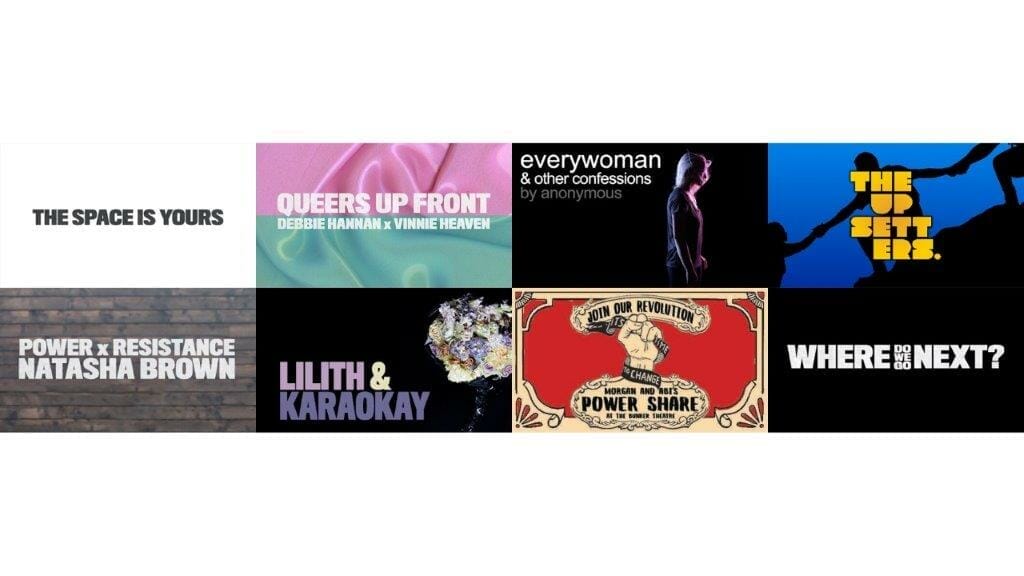Sophie NL Besse directs Welcome to the UK in its world premiere at The Bunker this January. Performed by a mixed ensemble, including those who have recently sought refuge in the UK, Welcome to the UK is brought to life by Borderline, a unique theatre ensemble created by PSYCHEdelight, Welcome to the UK will be presented alongside the company’s first production Borderline.
Welcome to The UK is at The Bunker 22nd January to 16th February 2019.
You’re directing Welcome to the UK at The Bunker, what can you tell us about it?
Our new show is a satire about the situation of refugees in this country. ‘The UK’ is a beautiful funfair led by our accordionist Prime Minister. Refugees – and even some European migrants now – try to walk through the different ‘attractions’ created by the hostile environment policy.
Tell us why you decided to form your theatre company?
I am a writer/director and psychotherapist. I created PSYCHEdelight Theatre Company eight years ago and use theatre as a way to help expression, as well as a platform where people can be heard through the shows we create together. As a French national and UK resident, it felt like a duty for me to go and volunteer in the Calais Jungle.
After a year of going there every month, I decided to address the negative narrative often associated with refugees. I decided to create a comedy where humour would hopefully break the ice with the audience, and with society in general. It was important for me to involve refugees and UK-based people, not just to give people who had to flee their homes an opportunity to tell their story the way that they wanted to, but also to help their integration here in the UK. What was meant to be a two-day show, Borderline, finally became a two-year tour that took us all the way to India.
How did the drama classes you taught in the Calais Jungle help you to understand the migrant situation better?
People were very keen to express themselves in any way possible for a few hours, just to escape the horror they were in. I witnessed an eagerness for comedy, for laughing. No one wants to constantly be associated with fear or pity. The Calais Jungle residents were very upset with what was said about them everywhere, with the fact that people were “stealing” their stories or pictures. They felt like animals in a zoo. That feeling reinforced my idea of re-empowering them, of giving them their voice back. This drama group became Borderline.
Tell us about the ensemble and how they’ve developed the show?
Borderline is an ensemble of 16 people, with 9 refugees and asylum seekers from Afghanistan, Sudan, Syria, Iran, Iraq, Zimbabwe, and Gambia, and 7 European performers. For Welcome to the UK, we collaborated for the first time with some women from ‘Women for Refugee Women’ drama group. We had our own little queen in the room during the 10 weeks of the creation process as Debby, one of the new women, had a 4-month-old baby at the time. Glory is now over one year old, and we’re very proud because she applauded at our last rehearsals! She helped a lot to get rid of the awkward politeness in the room when we started this collaboration. She reduced sensible adults into silly faces within seconds, which really helped to bond the group and help us find a playfulness together. We then found our world: ‘The UK’ would be what seemed like a beautiful funfair with a haunted house in it. We devised our show from life stories, using all the skills in the room – luckily there were plenty!
Why do you think using comedy is a good way to get the play’s message across?
I think humour brings people together. It’s a bridge we create between the audience and us. We want to convey an attractive and hopeful message, while still addressing the difficult journeys refugees and asylum seekers go through. Satire also enables us to address very painful or violent subjects with a different perspective, which makes it watchable for the audience, and also very touching. Comedy is on the other side of tragedy. It also provides a different image of the refugee performers involved in the project and that’s very important for me. I’m here to re-empower people, to give them their voices back, so that they can show audiences how resilient, talented and fun they are. No one wants to constantly be associated with pity or sadness. These are not poor, miserable people. Far from it.
What do you hope audiences will feel when they see Welcome to the UK?
I hope they will feel shaken in a good way, as though they had gone on the roller coaster with us through a whole range of emotions.
I hope they will find the show thought-provoking, that it might give them the impulse to help spread a more positive image of refugees.
I hope our shows, Borderline and Welcome to the UK, will be a first step towards getting rid of pity, fear and rejection, which are very dangerous feelings for our society. I hope the audience will be impressed and in love with the cast by the end of the show!
What would you say to anyone thinking about coming to see Welcome to the UK?
I would say ‘Thank you’. This show is their voices and it’s important we listen to them.
Image Credit: José Farinha.


